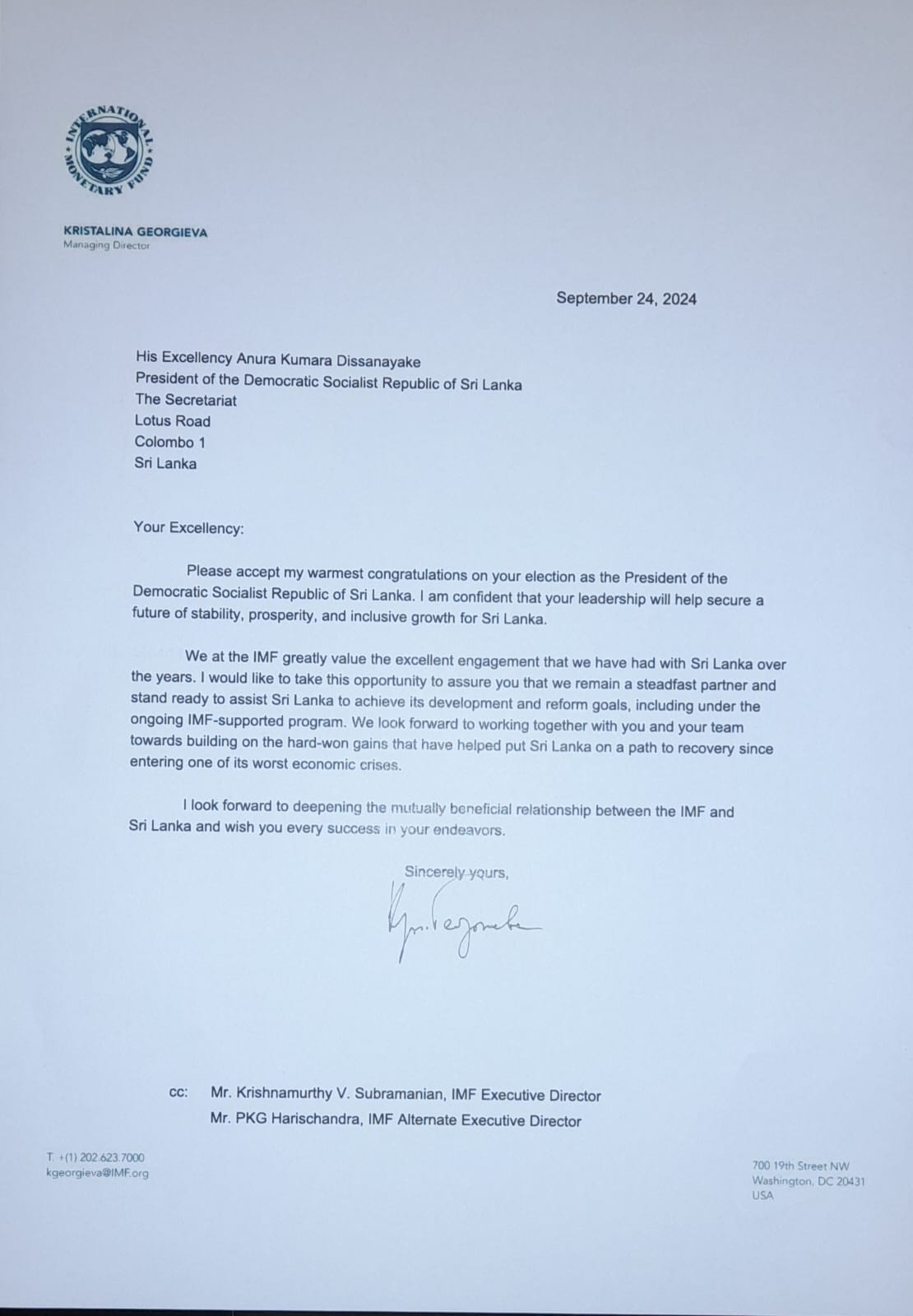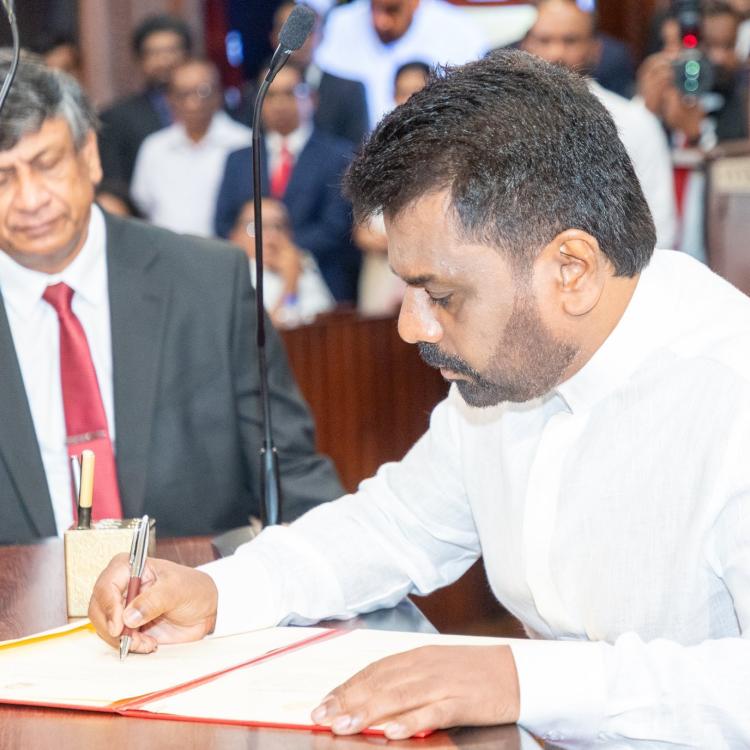The International Monetary Fund (IMF) has written to Sri Lanka’s new president, stating it looked forward to working with Anura Dissanayake “towards building on the hard-won gains that have helped put Sri Lanka on a path to economic recovery."
The letter from the global body comes as Dissanayake pledged to “renegotiate” a US $3 billion bailout loan that Sri Lanka heavily relies on in the wake of a devastating economic crisis.
“I would like to take this opportunity to assure you that we remain a steadfast partner and stand ready to assist Sri Lanka to achieve its development and reform goals, including under the ongoing IMF-supported program,” said the IMF.

Though Dissanayake election promise to renegotiate the painful terms of the loan proved popular at the ballot boxes, analysts have said there may actually be little that can be changed.
"There are certain red lines that the IMF will not agree to negotiate," Murtaza Jafferjee of the think tank Advocata told AFP. "On the fiscal side, there is not much adjustment that can be done.”
Dissanayake’s election victory also coincides with a debt restructuring agreement reached last week by the preceding government. Sri Lanka announced that it had reached Agreements in Principle on the restructuring of approximately USD$ 17.5 billion of external commercial debt (as of end 2023), a critical step toward stabilizing its finances after defaulting last year.
The deal still needs to be passed by parliament, which will have to wait several more months, after Dissanayake called for parliamentary elections to be held on November 14.
Umesh Moramudali, an economics lecturer at the University of Colombo, warned that failing to secure the deal's passage could open Sri Lanka to legal action from its creditors. "It would be in the best interest of the country to avoid litigation with bondholders," he told AFP.
Dhananath Fernando, chief executive of Advocata, a research think-tank, told the Financial Times, “The way out is tough”.

